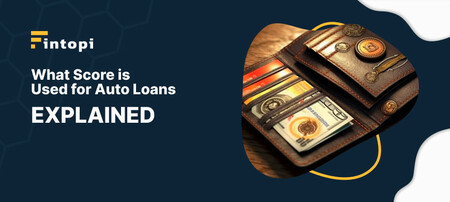What Score is Used for Auto Loans Explained
When securing an auto loan, your credit score determines whether you’ll be approved and what interest rate you’ll receive. But with multiple credit scoring models available, which one do car lenders look at? In this article, we will explore the different credit scores used by auto lenders and how they impact your chances of getting approved for a car loan.
The Ultimate Guide to Which Credit Score is Used for Auto Loans
Two main scoring models provide credit scores: VantageScore® and FICO® Score. Both score consumers on a scale from 300 to 850, and auto lenders may use either model when approving new car loans or leases. However, some critical differences between these two models can affect their usage in the auto lending industry.
Demystifying the Process: Which Credit Score is Used for Car Loans
FICO® Scores have been around longer than VantageScore®, making them more widely recognized among lenders. All three FICO Basic, Advanced, and Premier plans offer access to 28 versions of your credit score so you can use it when applying for any credit – including auto loans, mortgages, and credit cards.
Critical Factors in Play: Which Credit Score Used for Car Loan Approval
While both FICO® and VantageScore share similarities in their base scoring models (with ranges from 300-850), FICO® also has industry-specific scores designed specifically for certain lending decisions – such as those made by auto lenders. These specialized scores range from 250-900.
Behind-the-Scenes of Financing: What Credit Do They Use For Car Loans?
According to a report by VantageScore Solutions & Oliver Wyman financial consulting firm (2017), over 70% of new auto loan & lease decisions were based on VantageScore credit scores from July 2016 to June 2017. That indicates that while FICO® Scores are still widely used, VantageScore is gaining traction in the auto lending industry.
Crucial Insights on Borrowing – What Credit Does Car Loans Use?
When applying for an auto loan, lenders may use one of three credit scores: FICO® Auto Score, Base FICO® Score, or VantageScore®. With 90% of top lenders using FICO® scores and nine out of ten largest banks utilizing VantageScore®, it’s essential to understand how both models can impact your chances of approval.
Navigating Your Finances – Understanding What Credit Report Is Used For Car Loans
Several factors beyond your credit score will influence your interest rate on an auto loan. According to the Consumer Financial Protection Bureau (CFPB), these factors include your credit history, loan amount, type of car being purchased, and loan length.
Unlocking Success with Vehicle Purchases: Discover What Score Auto Lenders Consider!
To better understand which specific score a lender might consider when evaluating your application for an auto loan or lease, you can access various versions through different providers:
– Equifax offers access to your FICO® Score 5 based on its report for $14.95/month.
– TransUnion provides access to your VantageScore® 3.0 based on its report for $24.95/month.
– Some providers also offer free reports featuring VantageScores as well.
The Power Of Three – Comparisons Between Experian, Equifax & TransUnion Scores In Auto Lending Decisions
Each central credit bureau—Experian, Equifax & TransUnion—uses slightly different information when calculating their respective versions of FICO and VantageScore; each bureau’s version could yield a different result depending upon what data they have available about your credit history.
Credit Check Essentials: Know How Different Bureaus Impact Your Eligibility While Seeking A Vehicle Finance Deal!
It’s essential to monitor all three of your credit reports and scores from each bureau, as lenders may use any of them when deciding. By staying informed about the information contained in each report, you can better understand how different bureaus might impact your eligibility for an auto loan or lease.
Fintopi’s Comprehensive Breakdown On Decoding Crucial Metrics That Determine Success Or Failure During Automotive Financing Applications
It maximizes your chances of securing a favorable auto loan or lease deal, and it’s crucial to maintain good credit across all three major bureaus. That includes paying bills on time, keeping debt levels low relative to available credit limits, and avoiding excessive applications for new lines of credit.
Conclusion
Understanding which credit score is used for auto loans is vital when navigating car-buying. Both FICO® and VantageScore models play significant roles in determining approval and interest rates on car loans. By monitoring all versions of these scores from Experian, Equifax & TransUnion—and taking steps to improve them—you’ll be well-equipped to secure the best possible financing terms for your next vehicle purchase.
FAQs:
How can I improve my chances of getting approved for an auto loan?
1. Maintain a healthy payment history by paying bills on time. 2. Keep debt levels low relative to available credit limits. 3. Avoid applying for multiple lines of new credit within a short period.
Can I still get approved for an auto loan with bad or no credit?
Yes! However, you may face higher interest rates or need a co-signer with good credit standing if you have poor or no established history.
Can I determine which score will be used before applying?
While knowing which score will be considered is difficult, you can access various versions of your credit scores through different providers to better understand where you stand.



